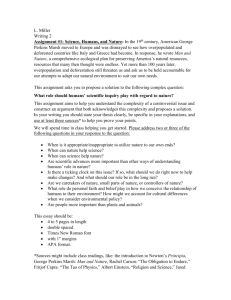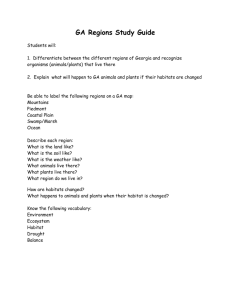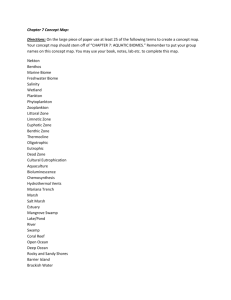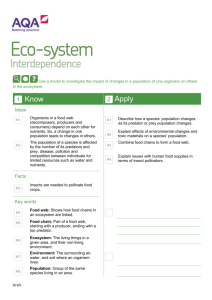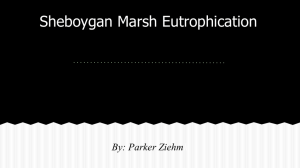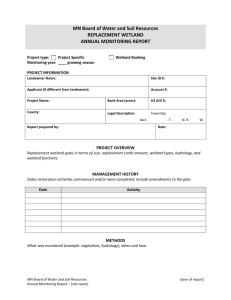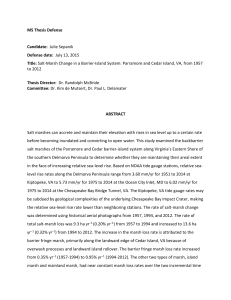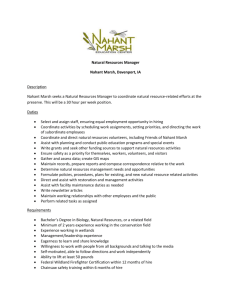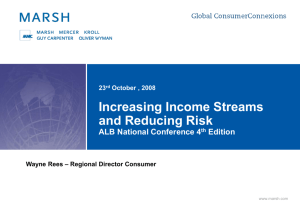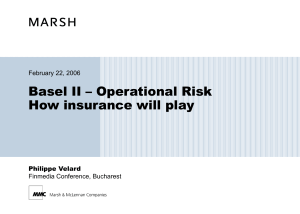Food Web of a Wetland Marsh Ecosystem
advertisement
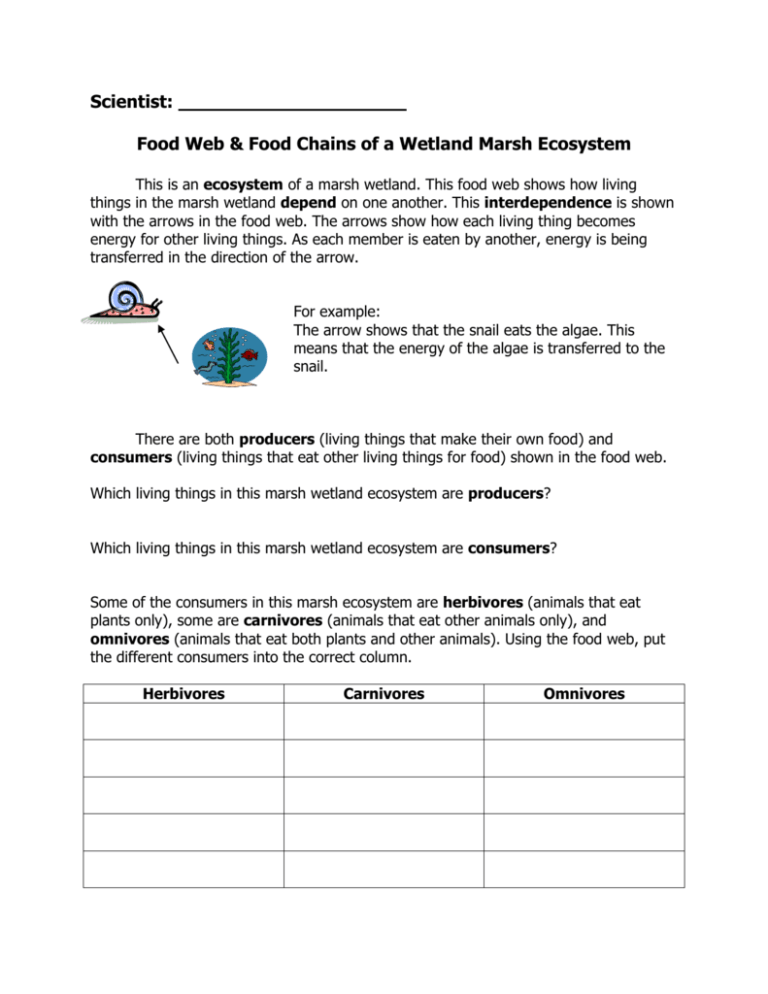
Scientist: Food Web & Food Chains of a Wetland Marsh Ecosystem This is an ecosystem of a marsh wetland. This food web shows how living things in the marsh wetland depend on one another. This interdependence is shown with the arrows in the food web. The arrows show how each living thing becomes energy for other living things. As each member is eaten by another, energy is being transferred in the direction of the arrow. For example: The arrow shows that the snail eats the algae. This means that the energy of the algae is transferred to the snail. There are both producers (living things that make their own food) and consumers (living things that eat other living things for food) shown in the food web. Which living things in this marsh wetland ecosystem are producers? Which living things in this marsh wetland ecosystem are consumers? Some of the consumers in this marsh ecosystem are herbivores (animals that eat plants only), some are carnivores (animals that eat other animals only), and omnivores (animals that eat both plants and other animals). Using the food web, put the different consumers into the correct column. Herbivores Carnivores Omnivores Animals who hunt other animals for food are called predators. The animals who are hunted are called the prey. Some predators feed on many different types of prey. An animal can also be both a predator and a prey. Name one animal from the marsh ecosystem that is both a predator and a prey. Food webs are made up of several different food chains that overlap. Many different food chains can be seen in this marsh food web. A specific food chain shows how the energy starts with the sun and moves through the food web in a direct path. One food chain example from this marsh ecosystem is: SUN CATTAILS CRAYFISH WATER BEETLE DUCK HAWK The sun gives energy to the cattails, which gives energy to the crayfish, which gives energy to the water beetle, which gives energy to the duck which gives energy to the hawk. In the space below, make at least two more food chains from the marsh food web. Create a diagram with arrows and write a sentence that explains how the energy moves through the food chain.
